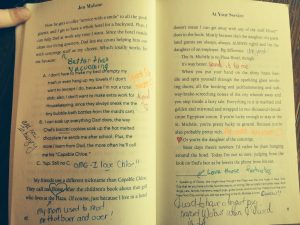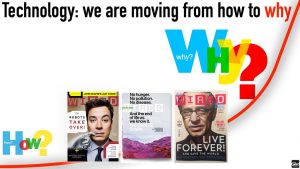
Everyone has different views on the question, “Is reading online helpful or harmful?,” but no one is ever really sure of the true answer. Technology may be becoming a huge part of our lives, but it still creates a huge distraction in our every day routine. Reading online has several benefits, but the drawbacks tend to outweigh the benefits. Online reading can result in a lack of concentration, difficulty comprehending, and an inability to fully create images in your mind, as you would when reading an actual book.
To begin with, it may be agreeable that technology plays a very big role in our lives. In the article “Is Google Making Us Stupid,” Nicholas Carr states “Never has a communications system played so many roles in our lives—or exerted such broad influence over our thoughts—as the internet does today” (Carr). As his statement may be true, technology can also be extremely distracting. The more we continue to use technology for reading online, the harder it is to stay focused. (Carr). As for me, when I read online, I find a lot of things such as ads that take my attention away from a piece of writing. If the ad is interesting, I will click on it and I am automatically on another page, and it can be difficult to get back to what I was reading. I could even spend hours looking through the ad I had just clicked on. In contrast, an actual book is much easier to follow and keeps me focused for a long period of time. A book is more clearly defined than an electronic screen. As Ferris Jabr explains, “A reader can focus on a single page of a paper book without losing sight of the whole text: one can see where the book begins and ends and where one page is in relation to those borders.” Paper books also give us an opportunity to use the text in any way we want such as highlighting and making notes in the margins (Jabr), which can be difficult to do with an online piece of text.

Secondly, reading online can show a result of difficulty comprehending. Even though technology is all around us and is becoming second nature (Carr), it continues to show that certain individuals still have comprehension issues based on online reading. In an experiment conducted by Erik Wästlund of Karlstad University in Sweden, 72 volunteers completed a Swedish-language reading-comprehension test. This test was a duration of 30 minutes and consisted of multiple choice questions and readings that were at most 1,000 words. As a result, Ferris Jabr states “People who took the test on a computer scored lower and reported higher levels of stress and tiredness than people who completed it on paper.” Wästlund conducted a number of studies that showed similar results. Those who had to scroll through the continuous text did not do so well on the attention and working-memory tests. Scrolling drains a lot more energy than turning a page or clicking on a page. Other researchers have come to the conclusion that people comprehend less when they read on a screen because reading on a screen is much more physically and mentally draining than reading on paper (Jabr). I agree that on screen reading is draining both physically and mentally because I experience it all the time. After reading a long article on a screen, my eyes begin to get tired and I no longer want to read the article. If the reading is done on paper, I can read for a very long period of time without experiencing any effects physically or mentally.
Lastly, when reading is done online, because of distraction, it can be difficult to fully create images in the mind as it would be done when reading a book. In the article “The Deep Space of Digital Reading” by Paul La Farge, he talks about an interactive novel called Pry. Along with text, this novel uses “video clips to expose its protagonist’s memories”. While interaction with a novel is a great idea, it still poses a big distraction. It can be very easy to lose sight of certain information. When reading long text online, it does not appear as a book would. It would be difficult to go back into the text to find information because the words may appear jumbled and confusing. With a book, its easy for the brain to remember where on a specific page that information was read (Jabr). In contrast to a website, losing sight of where certain information is on a webpage can be very easy to do by simply scrolling down the page.
There is no telling where reading online will take us in the future. I believe everyone has their own methods of how they understand writing and what they use to understand it. Online reading will most likely continue to be a huge part of our lives because technology, like our phones, is a huge part of our every day. As we continue to rely on technology to help us understand the world, “our own intelligence flattens into artificial intelligence” (Carr). When it comes to reading, paper and ink will always have the advantage.
Works Cited:
Carr, Nicholas. “Is Google Making Us Stupid?” The Atlantic. Atlantic Media Company, July 2008.Web. 26 Feb. 2017
Jabr, Ferris. “The Reading Brain in the Digital Age: The Science of Paper versus Screens.” Scientific American. N.p., 09 Apr. 2013. Web. 26 Feb. 2017.




